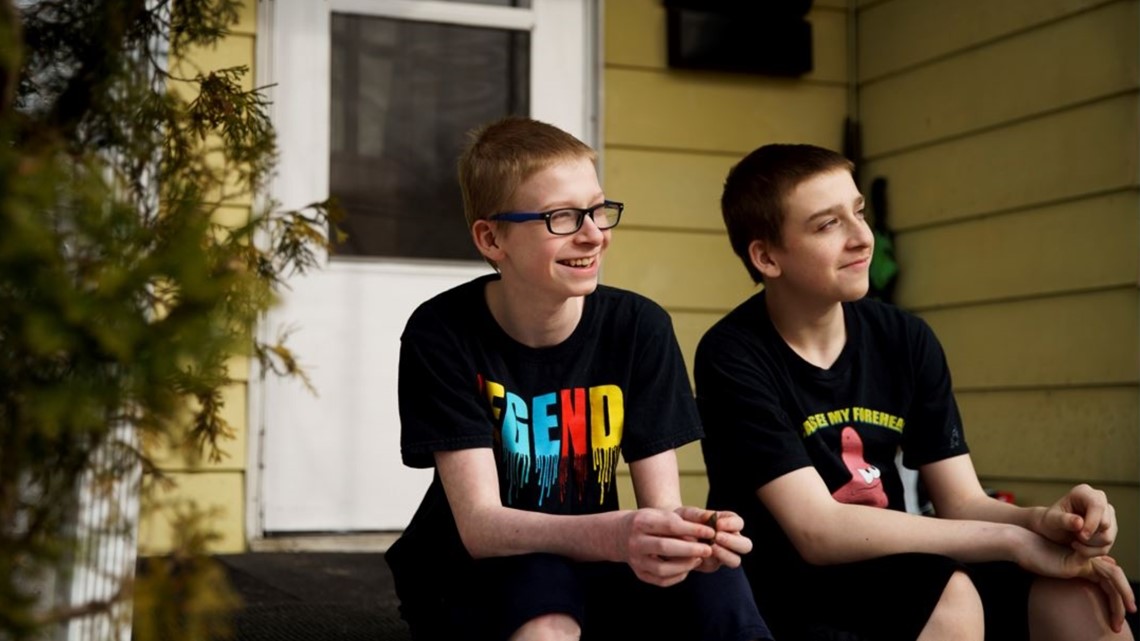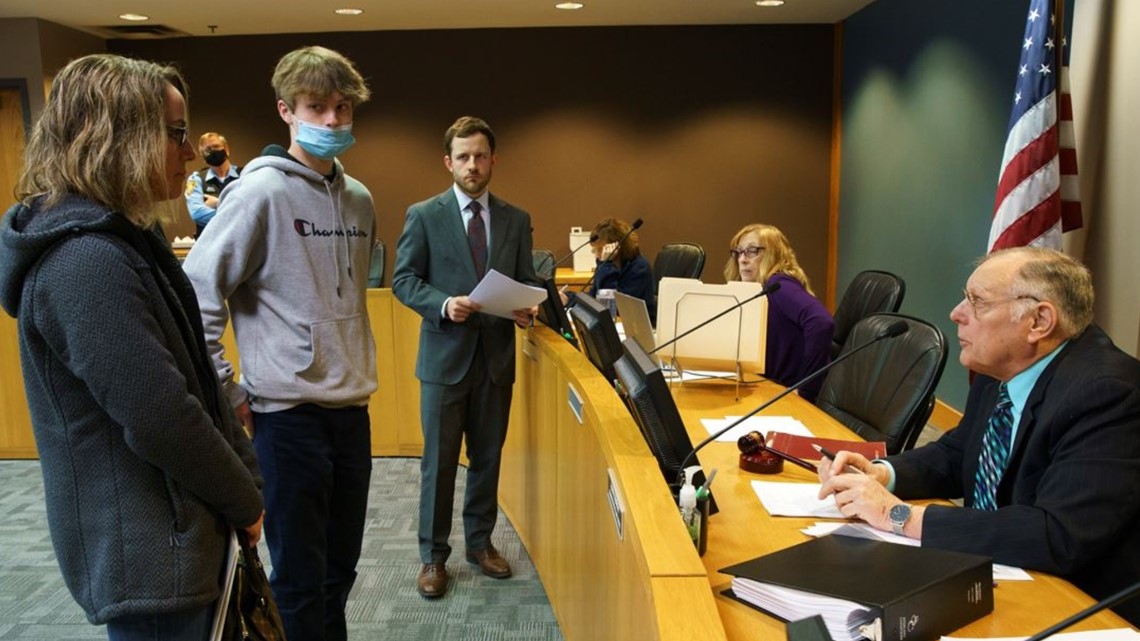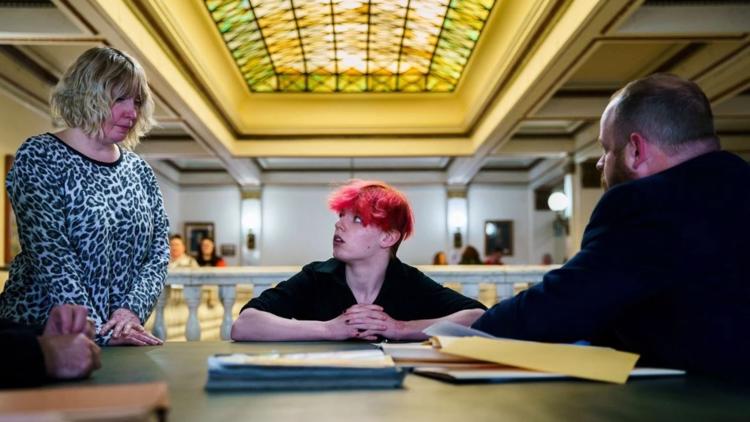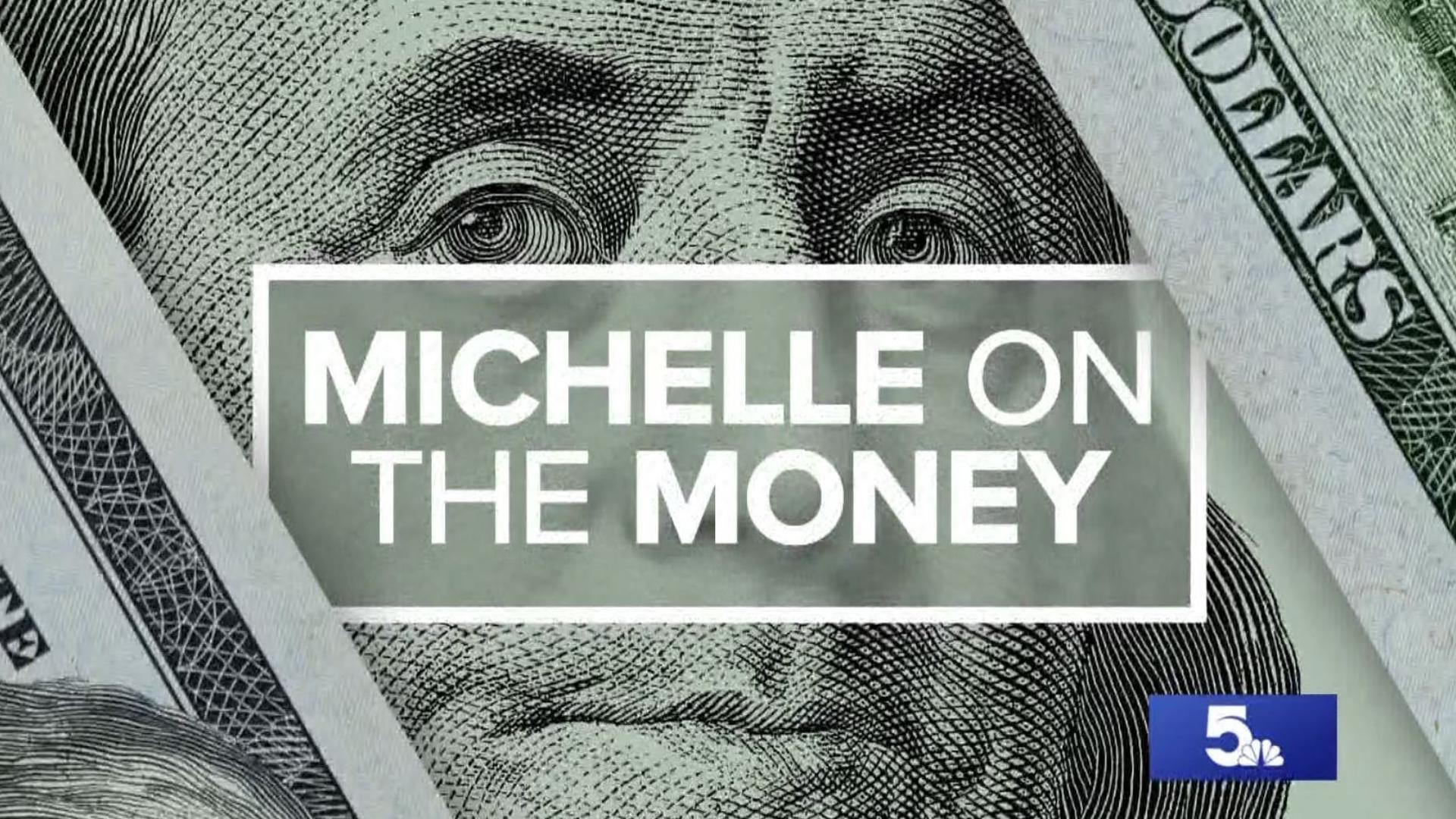ILLINOIS, USA — This story was originally published by ProPublica.
The courthouse lobby echoed like a crowded school cafeteria. Teenagers in sweatshirts and sneakers gossiped and scrolled on their phones as they clutched the yellow tickets that police had issued them at school.
Abigail, a 16-year-old facing a $200 penalty for truancy, missed school again while she waited hours for a prosecutor to call her name. Sophia, a 14-year-old looking at $175 in fines and fees after school security caught her with a vape pen, sat on her mother’s lap.
A boy named Kameron, who had shoved his friend over a Lipton peach iced tea in the school cafeteria, had been cited for violating East Peoria’s municipal code forbidding “assault, battery, and affray.” He didn’t know what that phrase meant; he was 12 years old.
“He was wrong for what he did, but this is a bit extreme for the first time being in trouble. He isn’t even a teenager yet,” Shannon Poole said as her son signed a plea agreement that came with $250 in fines and fees. They spent three hours at the courthouse as Kameron missed math, social studies and science.
The nearly 30 students summoned to the Tazewell County Courthouse that January morning were not facing criminal charges; they’d received tickets for violating a municipal ordinance while at school. Each was presented with a choice: agree to pay a fine or challenge the ticket at a later hearing. Failing to pay, they were told, could bring adult consequences, from losing their driving privileges to harming their future credit scores.
Across Illinois, police are ticketing thousands of students a year for in-school adolescent behavior once handled only by the principal’s office — for littering, for making loud noises, for using offensive words or gestures, for breaking a soap dish in the bathroom.
Ticketing students violates the intent of an Illinois law that prohibits schools from fining students as a form of discipline. Instead of issuing fines directly, school officials refer students to police, who then ticket them for municipal ordinance violations, an investigation by the Chicago Tribune and ProPublica has found. (Use our interactive database to look up how many and what kinds of tickets have been issued in an Illinois public school or district.)
Another state law prohibits schools from notifying police when students are truant so officers can ticket them. But the investigation found dozens of school districts routinely fail to follow this law.
“Basically schools are using this as a way to have municipalities do their dirty work,” said Jackie Ross, an attorney at Loyola University Chicago’s ChildLaw Clinic who specializes in school discipline. “It’s the next iteration of the school-to-prison pipeline. Schools might be patting themselves on the back and saying it’s just the school-to-municipality pipeline, but it’s the same philosophy.”


At the assembly-line hearings where many of these cases are handled, students have no right to legal representation and little chance to defend themselves against charges that can have long-term consequences. Ticket fines can be hundreds of dollars, presenting an impossible burden for some families, and administrative or court fees of up to $150 are often tacked on.
Unpaid fines are sometimes sent to collections or deducted from parents’ tax refunds. And, unlike records from juvenile court, these cases can’t be expunged under state law.
No government entity tracks student ticketing, either in Illinois or nationally. Though a handful of communities in other states have sought to limit the practice, Illinois has not tried to monitor it, even after lawmakers attempted several years ago to stop schools from fining students as discipline. The Tribune and ProPublica quantified school tickets through more than 500 Freedom of Information Act requests to school districts and police departments, focusing on nearly 200 high-school-only districts and large K-12 districts.
In all, the investigation documented more than 11,800 tickets issued during the last three school years, even though the COVID-19 pandemic kept students out of school for much of that period and even though records show no students were ticketed in the state’s biggest district, the Chicago Public Schools.
The analysis of 199 districts, which together encompass more than 86% of the state’s high school students, found that ticketing occurred in at least 141. In some K-12 districts, tickets were issued to children as young as 8.
Though school officials and police say ticketing keeps students from facing more serious criminal charges, the process routinely draws them into a legal system for infractions that would never be considered sufficiently serious to be heard in juvenile court. Many parents noted angrily that their children already had been suspended, given detentions or otherwise disciplined at school for their behavior.
The quasi-judicial hearings for these tickets often take place at police stations or village halls, and they’re presided over by lawyers who are not judges. Even when tickets are handled at a courthouse, as in central Illinois’ Tazewell County, local prosecutors resolve most cases informally before getting a perfunctory signoff from a judge.
Tribune and ProPublica reporters attended more than 50 hearing dates, observing hundreds of cases around the state. Some communities hold as many as three sessions a month, with students making up the vast majority of cases.
The revenue from the student tickets goes to the municipalities, not the schools, and essentially funds the ticketing system, including the employees who manage the hearings, lawyers who prosecute the cases and hearing officers who rule on them.
With few watchful eyes on the school ticketing system and few rules to govern it, inequities have gone undetected. The investigation examined the race of students ticketed in dozens of school districts and found that police had issued tickets disproportionately to Black students. Even in predominantly white schools, Black students sometimes received most of the tickets. In some communities, Latino students also were ticketed at disproportionate rates.


The fines and punishments, which are set by local governments, vary widely. That means the penalty for disorderly conduct violations might be $450 in one town, $50 in another and community service in a third. Towns also have different policies about whether and when they pursue unpaid ticket debt.
Some police departments choose not to ticket students at school; they say it’s not an effective way to change behavior or help young people. Some schools have police officers on campus but direct them to stay out of minor disciplinary matters.
At schools where police routinely ticket students, officials argued that some young people need consequences beyond school discipline. They said students returning to school after pandemic closures have shown an increase in troubling behavior that has been difficult to manage.
That’s reflected in recent patterns of police ticketing.
At Pekin Community High School near Peoria, police issued 62 tickets totaling more than $10,000 before Halloween. Officers wrote 13 tickets for truancy on a single November day at Dundee-Crown High School in suburban Carpentersville. At McHenry Community High School this fall, police issued dozens of tickets for disorderly conduct, property damage, or possession of e-cigarettes or cannabis.
One woman kept track of students’ fines and hearing fees in a notebook while accompanying her 15-year-old daughter to a packed December hearing in the McHenry City Council chambers. The total came to more than $5,000, including her daughter’s $450 ticket for disorderly conduct.
“Merry Christmas,” the hearing officer said sarcastically as he handed down the punishments.
“Instead of counseling these children, they are giving them tickets,” said the mother. “When they are handing out citations in this volume, you have to stop and say, ‘What’s going on here?’”
Click here to read the full story on Pro Publica's website.



